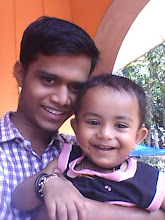LEADERSHIP STYLES
Autocratic
style
•
Centralized
power and decision making
•
Close
supervision and control
•
Discipline
through rewards/punishments
•
One-way
communication
•
Total
dependence of subordinates on superior
•
An
autocratic leader is one who takes all decision himself without consulting the
subordinates
•
He
centralizes power and decision making in himself
•
Orders
are issued and subordinates are expected to execute those without backtalk
He permits very little freedom of
action
Participative
/ Democratic style
•
Involves
people in decision making and goal setting
•
Attitudes,
feelings, suggestions of members considered while making decisions
•
Freedom
of thinking and action available to a reasonable context
•
Two
ways, open communication between members
•
Opportunity
to use one’s potential in the service of organization exists
Laissez-Faire
/ Free-Rein Leadership Style
•
Group
members set goals and decide things on their own
•
Leader
is a passive observer of things
•
Leader
does not decide, does not control or exercise influence over the group
•
Members
operate in an unrestricted environment
•
Communication
is open and can take any direction
•
Leader
abdicates responsibility





0 comments:
Post a Comment